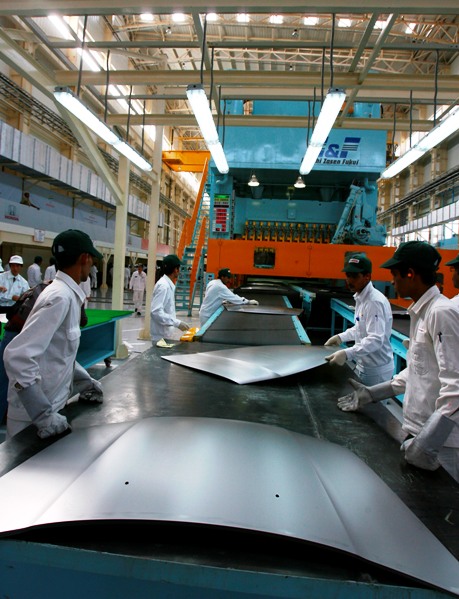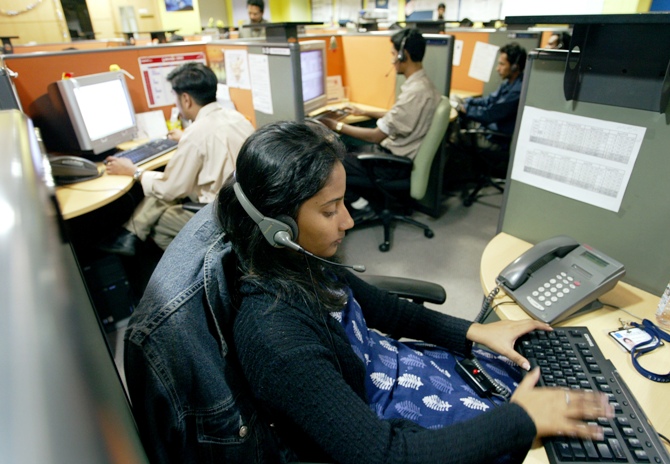Photographs: Stefan Wermuth/Reuters
Employees in India can expect to see their pay increase by an average of 11 per cent in 2014, though after factoring in inflation, the rise would be just 2 per cent, according to the latest Salary Trends survey by ECA International.
According to ECA International, a provider of knowledge, information and technology for the management and assignment of employees around the world, factoring in inflation, employees in Asia are likely to receive the biggest average increases in real terms.
The photograph is used for representational purpose only
. . .
Why wages in India will rise by just 2%
Image: Call centre agents.Photographs: Erik De Castro/Reuters
"For the second year in a row, employees in India can expect to see their salaries increase by an average of 11 per cent.
“While these are among the highest increases in the world they are only 2 per cent above inflation forecasts for India next year," ECA International said.
Employees in mainland China look set to experience some of the highest wage rises in the region, both before and after inflation is factored in, the report said.
Chinese companies predict salary increases of 8 per cent in 2014.
Allowing for inflation, Chinese workers will see a 5 per cent increase in real terms.
The photograph is used for representational purpose only
. . .
Why wages in India will rise by just 2%
Image: Employees work inside a new plant of Honda Siel Cars India Ltd.Photographs: Vijay Mathur/Reuters
The biggest salary increases in Asia next year will be given by companies in Pakistan. They are forecasting 13 per cent salary hikes for their staff in 2014 and with a predicted inflation of 8 per cent, employees are also set to receive the second-highest 'real' increases in Asia after China.
Workers in Japan will continue to experience the region's lowest wage increases.
If inflation rises to the 2.9 per cent as predicted by IMF for 2014, they could experience a reduction in their buying power next year.
The survey has forecast the highest pay rise by companies in Venezuela.
The photograph is used for representational purpose only
. . .
Why wages in India will rise by just 2%
Image: Indian employees at a call centre provide service support to international customers, in the southern city of Bengaluru.Photographs: Sherwin Crasto SC/PB/Reuters
Employers there are predicting 26 per cent pay rise for staff next year.
However, the figure trails behind inflation forecasts.
The IMF is predicting 38 per cent inflation in Venezuela next year, leaving employees there facing a spending power reduction of 12 per cent in real terms.
Companies in Switzerland and Greece are forecasting the lowest wage increases in the survey.
Employees there can expect salary rises of around 2 per cent.
The photograph is used for representational purpose only
. . .
Why wages in India will rise by just 2%
Image: A file photograph shows postal employees dispensing stamps.Photographs: Savita Kirloskar/Reuters
However, despite these low increases, little if any, of this is likely to be eroded by inflation, even as many of their peers will be worse off than them in real terms.
In both the US and Canada, companies are predicting 3 per cent wage rise, while those in Europe are forecasting 3.5 per cent rises next year.
ECA's 2013/2014 Salary Trends Survey reports on current and projected salary increases for local employees.
This year, it covered 316 MNCs across 64 countries and regions.
The photograph is used for representational purpose only






article